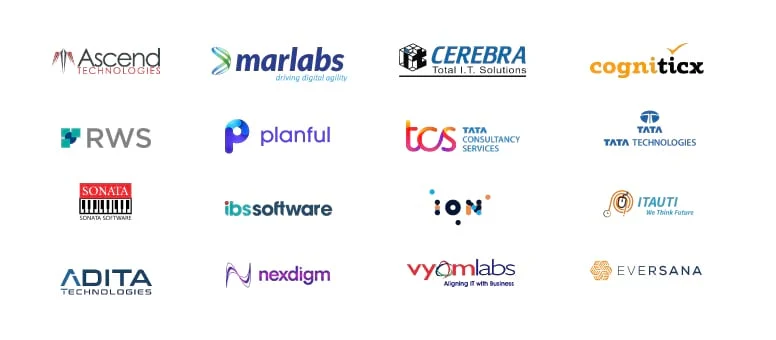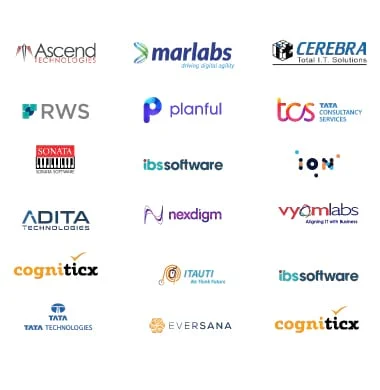30+ Hrs
Hands On Training
Lifetime Access
Updated Content
Customizable
Learning Paths
Industry Expert
Mentors
Projects
Advanced Interactive

Hands On Training
Updated Content
Learning Paths
Mentors
Advanced Interactive
Splunk is a data analytics platform for researching, analyzing, and visualizing machine-generated data collected from applications, websites, devices, sensors, etc., that comprise your IT infrastructure and business. It indexes and correlates the information in a container that allows searching and generating reports, alerts, and visualizations.
Our trainers for Splunk training are skilled professionals in Splunk with work experience. So, you can master the concepts of Splunk using Splunk training in Bangalore. In this Splunk training, you will gain knowledge on configuration and user management, setting up a cluster, creating and managing Splunk reports, creating and managing alerts, data ingestion from various sources, and Splunk knowledge objects that include searches, and Splunk dashboards or visualizations, etc. Our trainers give you complete assistance during your Splunk course and make you an expert in Splunk. So do not miss the opportunity of advancing your career. Enroll now and get the best Splunk training in Bangalore.
To apply for the Splunk Training in Bangalore, you need to either:
At HKR Trainings, the Course Curriculum was designed with the help of experienced professionals with work experience on Splunk. So, they have included every topic in this Course curriculum and keep you updated. Following is the list of modules that will be covered in your Splunk training in Bangalore.
Section1: Splunk Developer Course Curriculum
Description: You can develop a Splunk Dashboard using which you can easily manage all customer data of a particular company. Such .....as ID, Name, Address, Ph. Number, etc. Read more
This project will teach you to build a custom dashboard for reporting, configuring, and monitoring various sales variables, such a.....s finished sales, revenue earned and lost, conversions, etc. Read more


Once you have completed this course, you will get to know:
Professionals who can benefit from Splunk Training are:
Knowing the concepts of data analysis is helpful, but it is not the prerequisite for taking up this Splunk course.
In your Splunk training, our trainers make sure to provide you with comprehensive knowledge about all Splunk topics. And also, make sure that you're prepared to go to your Splunk interviews. However, cracking the interview depends on how well you perform.
The Splunk trainers at HKR Trainings are experienced professionals working on Splunk. They have approximately 8-10 years of work experience, and therefore they are aware of the requirements of the industry. So give you the industry-oriented Splunk training.
In order to start your Splunk training, you must visit our website and register for the Splunk training. After that, our Customer Support team will contact you with more details on the Splunk training.
When you complete your Splunk training, we will present you with the course completion certificate on Splunk.
Splunk is one of the most demanding data analytics tools in the market. So, getting certified on Splunk will set you apart from the non-certified professionals and enable you to grab the best job offers.
You can search to learn Splunk Training in other cities, such as Splunk Training in Hyderabad.
Splunk is a highly scalable, advanced, and effective platform that helps to search, analyze, and display the system-produced data collected from different sources.
We will provide a recorded session of the Splunk class you missed during the Course for revision. You can answer your doubts with the trainers the next day.
We provide our Splunk learners with a free demo class before enrolling in our Course. It helps them know details about our trainer’s profile, training methodology, course content, and more.
Our Splunk trainers are well-educated, skilled, and certified experts with domain expertise over 10+ years. They are currently working in this domain, and they make learning interactive for learners.
After learning Splunk skills, if you have any additional queries, you can contact our learning support executives for more queries you have.
Many students and professionals were satisfied with the training provided by HKR on different IT skills.
The salary of a skilled Splunk Consultant in India stands between Rs. 6LPA to Rs. 33LPA and with an average pay of Rs. 14 LPA. These experts earn between USD 156K to USD 223K p.a in the USA.
It is easy to learn Splunk as it is GUI-based and offers multiple career opportunities after learning.
You can finish learning Splunk skills within 25 to 30 hours of detailed learning.
There is no need to learn coding skills to start with Splunk, as it has a GUI-driven interface. However, if you have a basic idea of web development for designing custom interfaces, it will be easier to learn.
There is an excellent demand for Splunk-certified experts. Hence, after getting Splunk Certification, you can explore multiple job roles in the market. Top companies like TCS, Capgemini, Wipro, Infosys, etc., hire these experts.
For Assistance Contact:
![]()
![]() +91 9711699759
+91 9711699759
Query